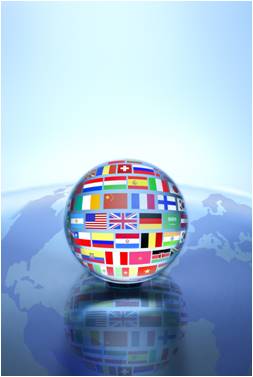The World Trade Organization (WTO) was formed in January 1995 after the Uruguay Round trade negotiations. Some would say that we have come a long way since then in easing the flow of world trade….and some would say….sure…but at an absolute snail’s pace.
To date 159 countries make up the WTO with approximately 130 of those countries being considered “poor”…or underdeveloped. The idea behind the WTO is that if all countries play by the same trade rules, then every country, rich or poor, will benefit. One obstacle to this has been the fact that, Australia, Brunei, Canada, Chile, Japan, Malaysia, Mexico, New Zealand, Peru, Singapore, the U.S. and Vietnam make up 40 percent of the global economy, so of course politics plays a major role in the process. Reciprocity also needs to take a back seat to providing concessions in trading with the developing countries for the bigger picture to come to fruition, which has been a definite hurdle. “You do something for me, such as lowering tariffs, and I have to simply thank you and move on.” In addition, the challenge of moving past what has been considered protectionism (the economic policy of restraining trade between states through methods such as tariffs on imported goods and restrictive quotas) by several countries has been a major factor in reaching agreements through the years. For this very reason, the Bali Package almost fell apart….but it didn’t!
Since there haven’t been many land mark decisions by the WTO over the years, the Bali Package certainly stands out as a victory for the poorer nations involved. It’s the first major global trade deal in nearly 20 years as 159 countries agreed on measures that could boost the world economy by as much as $1 trillion. This agreement over time could keep alive the WTO’s broader Doha Round of trade negotiations, sometimes known as the development round because of sweeping changes in regulations, taxes and subsidies that would benefit low income countries.
The deal was struck at a summit on the Indonesian island of Bali. At the heart of the ‘Bali Package’ is an agreement to simplify customs procedures and speed up the flow of goods. It’s the most significant multilateral trade pact since the World Trade Organization was formed in 1995. The package could cut the costs of trade by 10-15% by slashing paperwork and easing border delays and transit bottlenecks.
It’s estimated that developing nations could save as much as $445 billion a year, and over time the deal could generate greater benefits for the global economy by increasing trade flows, revenue collection, and investment. The Bali agreement also allows developing countries to continue to stockpile food to sell at subsidized rates to the poor.
It also keeps alive the possibility that a broader agreement to create a level playing field for rich and poor countries could be reached in the future, analysts said. Trade ministers had come to the four-day WTO meeting on the resort island of Bali with little hope that an agreement would be reached. The centerpiece of the agreement reached in Bali were the measures to ease barriers to trade by simplifying customs procedures and making them more transparent.
The Bali package comes under three headings, namely, trade facilitation, agriculture and development. Trade facilitation refers to issues on cutting red tape and streamlining customs and port procedures. Agriculture, meanwhile, refers to four specific issues concerning general services that will be added to the so-called “Green Box”—the category of domestic support that is considered not to distort trade (or to distort minimally) and therefore allowed without any limits; developing countries’ public stockholding of food for food security; tariff quota administration; and export competition, the WTO said.
Under the development heading, the decisions concerned duty-free, and quota-free access for least developed countries to export to richer countries’ markets. In addition, simplified preferential rules of origin for least developed countries, makes it easier for them to identify products as their own and qualify for preferential treatment in importing countries. Call it a “services waiver,” allowing least developed countries preferential access to richer countries’ services markets; and a “monitoring mechanism,” consisting of meetings and other methods for overseeing special treatment given to developing countries.
Director-General Roberto Azevêdo, in a speech at a diplomatic seminar in Lisbon on 6 January 2014, said: “The task of strengthening the multilateral system and moving towards delivering on the Doha Development Agenda will be difficult — but it is not impossible. Many didn’t believe we could deliver in Bali, and with good reason. But we did — and we can do more. Bali is just the start.”
By Bob Brewer Staff Writer























